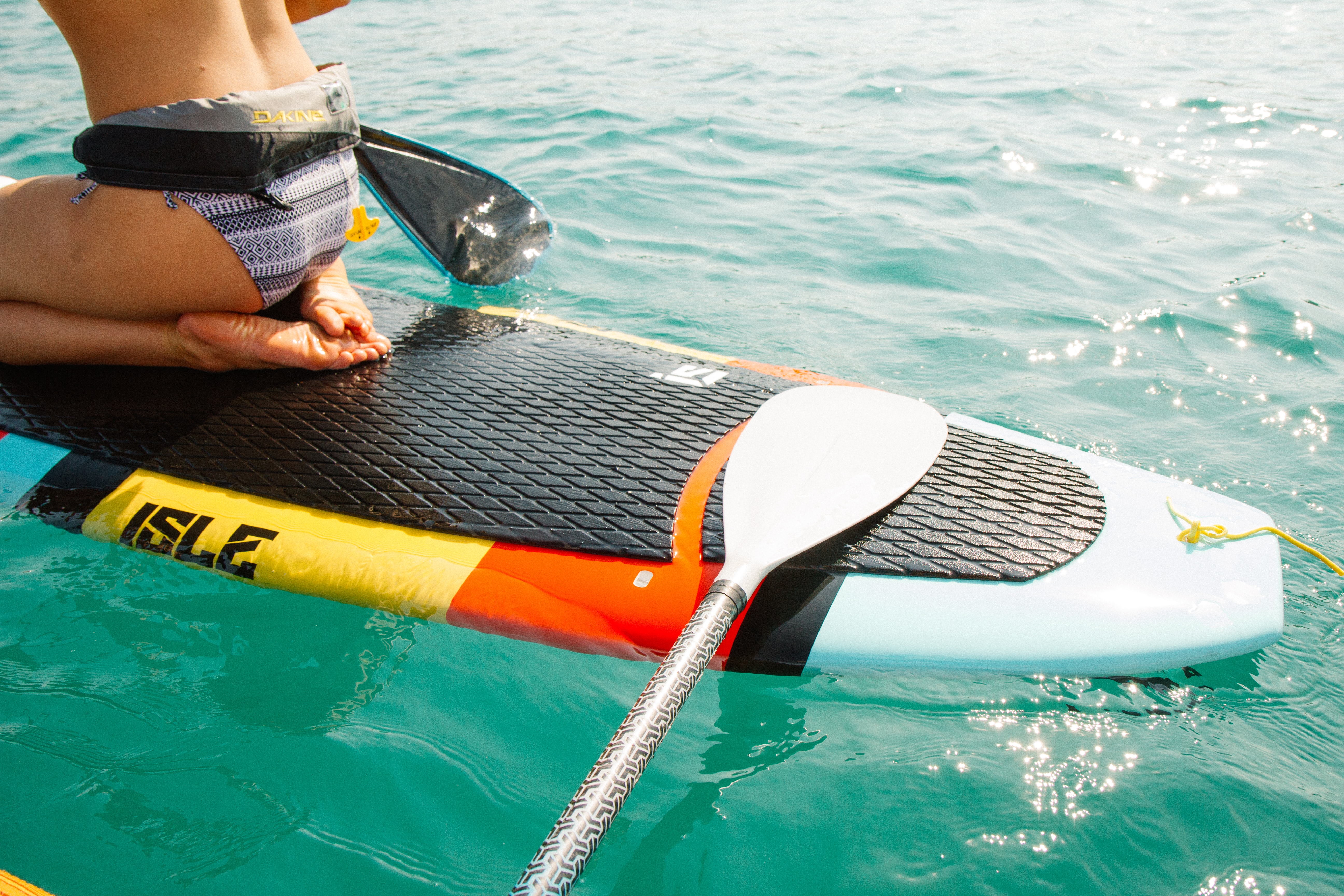Inflatable Paddleboard SUP Pros and Cons
What are the REAL Pros and Cons of Inflatable Paddleboards?

I’ve been into paddleboarding and paddleboards now for several years, and I’ve come to appreciate the advantages and disadvantages of using one.
To help you make the best decision, we’ve outlined the top pros and cons of SUPs to help you decide if this sport is right for you.
Right let’s get into this!
Let’s begin with the advantages of owning an paddleboard.
Pros ✅
Take it with you anywhere!
People consider inflatable boards’ greatest advantage to be their portability.
They are convenient to store because they deflate to a small size and fit into a large carry bag/backpack. You can take them with you in your car’s trunk, an RV, a larger boat, or even an airplane.
They are really easy to take anywhere. I’ve even seen people take them on a bike, which is cool!
Great for travelers
It can be very difficult and expensive to travel with a fiberglass board.
There are no extra fees when you check inflatable paddleboards onto an airplane because they weigh very little and take up little space.
A board can open up a world of possibilities when you’re travelling.
You can experience a new kind of paddling in unfamiliar waters.
When you fall, it doesn’t hurt as much
It’s inevitable that you will fall while stand-up paddling, particularly when first starting out or paddling in waves. However, it is hoped that the weather and water will be warm.
ISUPs can be extremely inflexible, but they do not have the same harsh surface as fiberglass boards do.
It’s also great for novices or children if you tumble, because you’re less likely to feel the impact.
Stable
Generally speaking, inflatable SUPs are more stable than hard-shell boards.
They are much easier to learn on and provide a more stable ride overall.
Easy to Store
You don’t need a garage or storage shed to store and inflatable paddleboard.
One of the great things about Inflatable Paddleboards is that you can deflate, roll up, and store these boards in a closet after using them.
For this reason they are great for people who lack storage space, for example, if you live in an inner city area.
SUPs are typically very durable
It’s hard to believe, but SUPs are better suited for river paddling and rocky shores.
An inflatable board will just bounce right off if it crashes into rocks, whereas a fiberglass board might get damaged.
It’s pretty durable, unless you really abuse it by stabbing sharp objects into it!
Great for pets - (Especially Dogs!)
I realized that I needed to take my new puppy for a paddle this year.
That inflatable board has been perfect for her. It is stable and the surface prevents her paws from sliding around as they might on a fiberglass board.
Puppies make the perfect companion for SUPing!
Cons ❌
Rigidity
An inflatable board that is properly inflated offers excellent performance and staying power.
Nonetheless, it is still an inflatable board and won’t be as rigid as a fibreglass board.
Maneuverability
I personally haven’t experienced any issues with an inflatable board, but I’ll admit that it isn’t as quick or as easy to manoeuvre as a fibreglass board.
In my opinion, a hard-shell board does not turn or respond as quickly as a fiberglass board, except for a couple of inflatable SUPs that I have tested.
Price
Inflatable stand-up paddleboards (SUPs ) are not always inexpensive.
People can be led to believe erroneously believe that an inflatable board will be cheaper than a fibreglass one. This is not always the case.
Quality is the key when purchasing one of these boards, and the price reflects that. However, in my experience the prices are just as steep.
Can be Prone to sinking in the middle
A soft spot or sinking in the middle of an inflatable stand-up paddleboard is a common problem.
An inflatable board that is inflated properly will not flex, particularly if it is a quality board.
Final Thoughts
We have provided you with the Pros and the Cons of Inflatable Paddleboards. In my opinion the pros They are easy to transport, just deflate and throw in the trunk of your car. They are lightweight, which makes it easy to take on and off the water. They are a good option for those with mobility issues or difficulty climbing in and out of a hard-shell SUP.
Inflatable SUPs are comfortable, especially compared to other SUPs. The soft edges of an inflatable make it easy to lie prone on the board, which is not possible on a hard-shell board.
They are durable. The materials used in their construction are strong enough to last for years.
They are easy to repair. Even if you have a puncture in your SUP, you will be able to fix it with a repair kit.
Photo by Holly Mandarich on Unsplash
